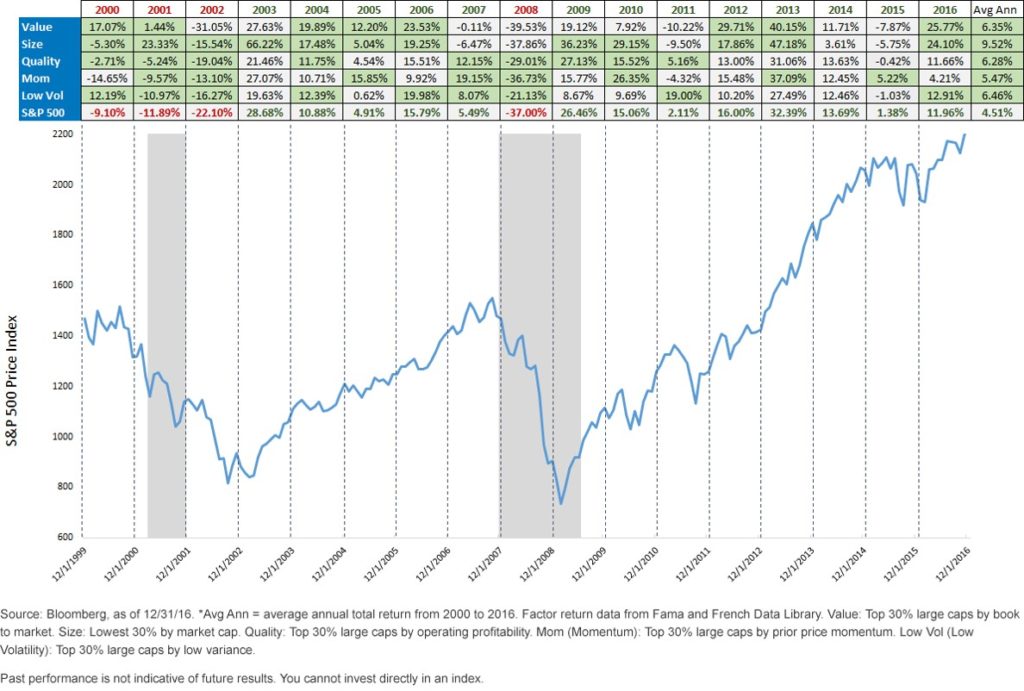Over the past few years, as hundreds of billions of dollars has flowed out of equity mutual funds and into exchange-traded funds (ETFs), a great migration of assets has been under way in the asset management business. This is occurring because of the changing business models of advisors and brokers-dealers and because of the unique benefits that ETFs can bring to investors, including relatively lower fees1, transparency of holdings, intraday liquidity and the potential for greater tax efficiency.
In many cases, “low-cost beta” ETFs, which track broad indexes, have outperformed the vast majority of active managers over time.2 This has made the decision to move assets from actively managed mutual funds into ETFs not just a decision based on cost, but also one based on performance.
But investors making this migration today have a choice that goes beyond just low-cost beta. For the past 10 years, WisdomTree has been showing investors ways to generate “low-cost alpha” in the form of fundamentally weighted ETFs that provide broad market exposure but that rebalance equity markets based on income, not market value. In recent years, other ETF managers have followed similar paths, creating narrower exposures that seek to tap into return premiums such as value, size, quality, momentum or low volatility—all of which have been associated with generating excess returns versus the market over time.
In the table above, we show how portfolios targeting value, size, quality, momentum and low volatility have performed compared to the S&P 500 Index in each calendar year since 2000. The last column on the right shows the annualized returns of these factor-based baskets over the 16-year period. Note that in each and every case, the annualized returns exceeded those of the broader market over the entire holding period.
Factors’ long-run performance
Yet, it is important to note that, despite all five of these factors outperforming the S&P 500 since 2000, they did not do so in each and every year. Factors are subject to the ebbs and flows of the business cycle, much like the sectors of the S&P. But, unlike factors, it is impossible for every sector of the S&P 500 to individually and collectively outperform the entire S&P 500 Index over time. The appeal of factor-based investing is that these major return premiums, based on decades of data, appear not to be subject to this same constraint.
WisdomTree believes the best way to capitalize on factor return premiums is consistent exposure to more than one factor versus the more speculative nature of “factor timing.” This is why — more than 10 years ago — we launched core equity Indexes that differentiated themselves from traditional benchmarks by weighting equity markets by dividends or earnings and rebalancing back to these measures of relative value once per year.
Using dividends or earnings as our vehicle to tap into return premiums was both an academic and an intuitive choice. To us, they represent common sense and transparent metrics that allow WisdomTree to consistently tap into both value and quality as potential sources of excess return. Going one step further, WisdomTree then segmented these Indexes by size—so that the large-cap, mid-cap and small-cap segments of the universes could be efficiently captured.
Our dividend suite tends to tilt more toward the value factor but maintains a bias to quality companies. Our earnings suite has proved to be a more blended approach, providing exposure to profitable companies, but with a bias toward those that are attractively valued compared to the market. Among WisdomTree’s eight core U.S. Indexes with 10-year track records, seven outperformed their comparable market cap-weighted Indexes in the decade following their respective inception dates.3 We believe this consistency displays the efficacy of WisdomTree’s multifactor approach, legitimizing the innovative and intelligent design and providing an important track record for indexes that seek to provide “better beta.” Read more about the 10-year anniversary performance of WisdomTree’s dividend-weighted suite of Indexes and the earnings-weighted suite of indexes.
Conclusion
More than 10 years ago, WisdomTree launched some of the industry’s first multifactor Indexes, tracked by corresponding dividend-weighted and earnings-weighted ETFs. For investors navigating the “great migration” from actively managed mutual funds to ETFs, WisdomTree believes these core “smart beta” offerings represent an important choice for investors exploring the core of the portfolios in search of alpha. We believe WisdomTree’s core ETFs represent a way to generate low-cost alpha in a world increasingly dominated by low-cost beta.
1Ordinary brokerage commissions apply.
2Source: S&P SPIVA U.S. Scorecard.
3Dividend Index suite inception date: 6/1/06. Earnings Index suite inception date: 2/1/07. The WisdomTree LargeCap Dividend Index did not outperform the S&P 500 in the 10 years following 6/1/06.

Luciano Siracusano is WisdomTree’s Chief Investment Strategist. He is the co-creator, with CEO Jonathan Steinberg, of WisdomTree’s patented Indexing methodology. Christopher Carrano is an investment analyst at WisdomTree. He works under Luciano Siracusano, WisdomTree’s Chief Investment Strategist, assisting with market and editorial research.
Commissions, management fees and expenses all may be associated with investing in WisdomTree ETFs. Please read the relevant prospectus before investing. WisdomTree ETFs are not guaranteed, their values change frequently and past performance may not be repeated. Past performance is not indicative of future results. This material contains the opinions of the author, which are subject to change, and should not to be considered or interpreted as a recommendation to participate in any particular trading strategy, or deemed to be an offer or sale of any investment product and it should not be relied on as such. There is no guarantee that any strategies discussed will work under all market conditions. This material represents an assessment of the market environment at a specific time and is not intended to be a forecast of future events or a guarantee of future results. This material should not be relied upon as research or investment advice regarding any security in particular. The user of this information assumes the entire risk of any use made of the information provided herein. Neither WisdomTree nor its affiliates provide tax or legal advice. Investors seeking tax or legal advice should consult their tax or legal advisor. Unless expressly stated otherwise the opinions, interpretations or findings expressed herein do not necessarily represent the views of WisdomTree or any of its affiliates. “WisdomTree” is a marketing name used by WisdomTree Investments, Inc. and its affiliates globally. WisdomTree Asset Management Canada, Inc., a wholly-owned subsidiary of WisdomTree Investments, Inc., is the manager and trustee of the WisdomTree ETFs listed for trading on the Toronto Stock Exchange.


